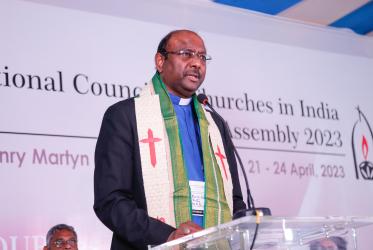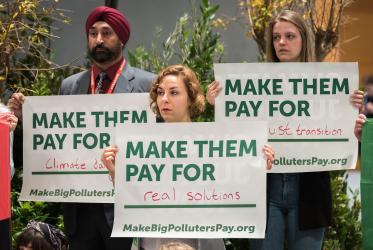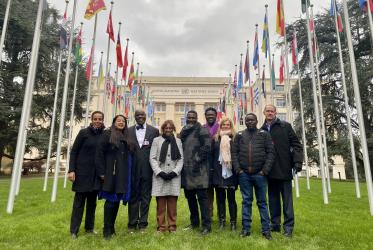Displaying 141 - 160 of 953
Ethical Perspectives on COP27 & Looking Forward Towards COP28
09 February 2023
Ecumenical Centre & online
Water and sanitation prominent on COP27 agenda
28 November 2022












